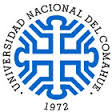- RDI Principal
- →
- Centro Universitario Regional Zona Atlántica
- →
- Artículos
- →
- Ver ítem
JavaScript is disabled for your browser. Some features of this site may not work without it.
Una historia vigente como particular enfoque de la historia del presente
Lezcano, Maximiliano J.
Resumen:
Mostrar el registro completo del ítem
Publicación relacionada:
http://revele.uncoma.edu.ar/index.php/Sociales/article/view/1594Métricas de Uso:
Ficheros en el ítem
| Ficheros | Tamaño | Formato | Ver |
|---|---|---|---|
|
No hay ficheros asociados a este ítem / ver Orígen del documento. |
|||
El ítem tiene asociados los siguientes ficheros de licencia:
Este ítem aparece en la(s) siguiente(s) colección(ones)
 Excepto si se señala otra cosa, la licencia del ítem se describe como Atribución-NoComercial-SinDerivadas 2.5 Argentina
Excepto si se señala otra cosa, la licencia del ítem se describe como Atribución-NoComercial-SinDerivadas 2.5 Argentina
Ítems relacionados
Mostrando ítems relacionados por Título, autor o materia.
-
Minelli, María Alejandra (Universidad Nacional del Comahue. Facultad de Humanidades. Departamento de Letras., )Espacio y cuerpo son dos de las principales coordenadas que definen nuestra experiencia del mundo y son también sedes previlegiadas de la inscripción del poder en la experiencia individual urbana: auque sus calles y plazas ...
-
Soraire, Astrid Carolina (Escuela Superior de Ciencias Marinas, )Comprender la selección y preferencia de hábitat por parte de especies vulnerables es esencial para proponer medidas y estrategias para su conservación y la de sus ambientes. El objetivo de esta tesina fue evaluar, en ...
-
Jara, Miguel Ángel (Universidade do Estado de Santa Catarina. UDESC Centro de Ciências Humanas e da Educação. FAED. PPGH, )El presente artículo recoge, con nuevas lecturas, los datos e información que hemos obtenido en nuestros procesos de investigación. Indagar sobre la enseñanza de la historia en la escuela secundaria, fundamentalmente la ...
Buscar en RDI
Listar
Mi cuenta
Estadísticas
Este documento es resultado del financiamiento otorgado por el Estado Nacional, por lo tanto queda sujeto al cumplimiento de la Ley N° 26.899

UNIVERSIDAD NACIONAL DEL COMAHUE | Buenos Aires 1400 | Q8300 - Neuquén Capital | Patagonia Argentina | Tel: +54-299-4490300
